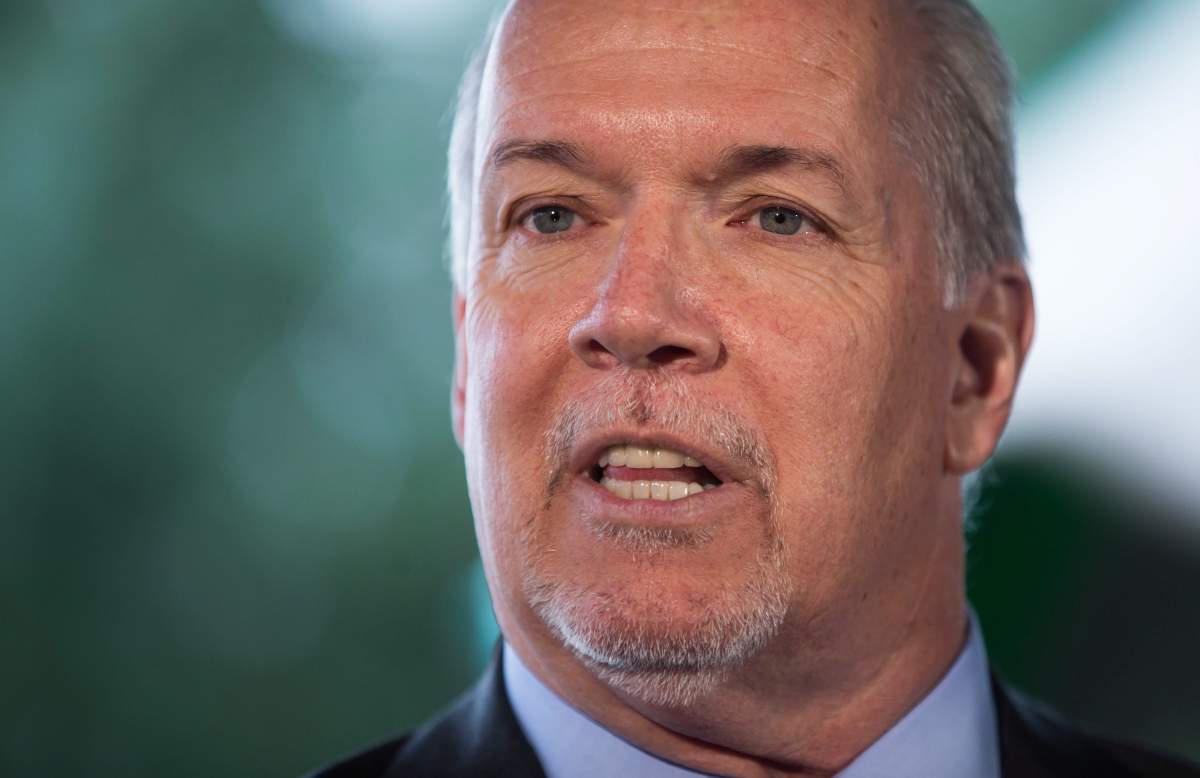B.C. premier John Horgan’s cabinet has accepted the recommendations made by Attorney General David Eby on how the referendum on a new electoral system in B.C. would work. Eby’s report to cabinet recommended two separate questions for people to vote on.

The questions are:
- Which should British Columbia use for elections to the Legislative Assembly?
- The current First Past the Post voting system
- A proportional representation voting system
- If British Columbia adopts a proportional representation voting system, which of the following voting systems do you prefer?
- Dual Member Proportional (DMP)
- Mixed Member Proportional (MMP)
- Rural-Urban PR
WATCH: Electoral reform referendum question subject of fiery legislature exchange

B.C.’s Attorney General David Eby released the suggested questions last week, based on public input, so that any changes by cabinet would be publicly known.
“Today, cabinet accepted the recommendations of the Attorney General on how the referendum on a new voting system will take place,” said Horgan in a statement. “Regulations are being prepared and the government will ask Elections BC to review the question, to ensure that the language used is clear and simple to understand.”
“This is an historic opportunity to replace our old voting system with a new way of voting that works for people. We look forward to public debate and lively campaigns on both sides. Ultimately, the people will decide.”
Horgan also announced on Thursday that the government would introduce legislation, if proportional representation is selected, that would require a second referendum after two election cycles. That referendum would ask British Columbians if they want to return to the first-past-the-post voting system or keep the PR system.

Get daily National news
“Cabinet confirmed that, should a new proportional system be chosen, a second referendum will be held following two election cycles, to give British Columbians the opportunity to decide whether they wish to keep the new voting system,” reads the statement. “We would like to thank the more than 90,000 people that took part in the consultation process, and all British Columbians as they take part in this important discussion leading up to the referendum.”
There have already been criticisms about the proposed electoral systems. Both Dual Member Proportional and Rural-Urban have never been used before. Elections BC will also not be providing electoral maps that would be used to elect members under the proposed proportional representation systems.
“They are trying to blow this past British Columbians, they are not even going to tell them what riding they will be in,” said Liberal leader Andrew Wilkinson last week. “The ridings will be changing dramatically, people won’t know where to cast their vote or who their representative will be. The NDP want them to just take it on blind faith.”
The referendum voting period is expected to run from October 22, 2018 until November 30, 2018.








Comments
Want to discuss? Please read our Commenting Policy first.